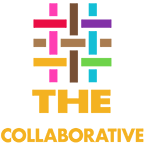On the closing day of the 2022 US Conference on HIV/AIDS (USCHA) in Puerto Rico, the final plenary session focused on the response to the current monkeypox outbreak. On behalf of HIV.gov, Timothy P. Harrison, Ph.D., Principal Deputy Director for the Office of Infectious Disease and HIV/AIDS Policy, spoke with Dr. Demetre C. Daskalakis, White House National Monkeypox Response Deputy Coordinator, about the same topic.
The final session of the conference was a plenary focused on the national response to monkeypox, which is having a disproportionate impact on people with and experiencing risk for HIV. The session featured presenters from CDC, HRSA’s Ryan White HIV/AIDS Program, and representatives from a health department and community-based organizations in New York, Los Angeles, and Boston discussing their agencies’ approaches to addressing the monkeypox outbreak. Dr. Demetre Daskalakis underscored that a syndemic approach to the response to monkeypox is essential given both the common risk factors and populations affected by HIV, STIs, and monkeypox. He applauded and encouraged the important roles the HIV community has played and will continue to play in the monkeypox response. He highlighted opportunities to connect those getting the monkeypox vaccine or treatment with HIV testing and PrEP or HIV treatment, vital actions to end both the monkeypox outbreak and HIV epidemic equitably across all populations. (Follow HIV.gov’s Monkeypox page for more information and resources.)
Also featured in the closing session was a presentation of several panels of the National AIDS Memorial quilt and an invitation to participate in the new Change the Pattern initiative highlighting Black and Latino lives lost to HIV.
USCHA is the largest HIV-related gathering in the United States, bringing together thousands of participants from all segments of the HIV community. Organized by NMAC, the 2022 conference was held in San Juan, Puerto Rico, from October 8-11 with over 3,000 participants registered. The conference featured over 120 institutes, workshops, and posters addressing issues in biomedical HIV prevention, aging, service delivery, and telehealth, prioritizing the issues of people with HIV and the next steps in ending the epidemic.

 The Training & Health Equity (THE) Collaborative provides capacity building, technical assistance, and training to healthcare organizations in the West region. Based out of the UCSF Department of Family & Community Medicine, THE Collaborative’s programs include the Pacific AIDS Education and Training Center, Alameda County Training Academy, and now Gilead Sciences’ Age Positively program. Learn more about
The Training & Health Equity (THE) Collaborative provides capacity building, technical assistance, and training to healthcare organizations in the West region. Based out of the UCSF Department of Family & Community Medicine, THE Collaborative’s programs include the Pacific AIDS Education and Training Center, Alameda County Training Academy, and now Gilead Sciences’ Age Positively program. Learn more about